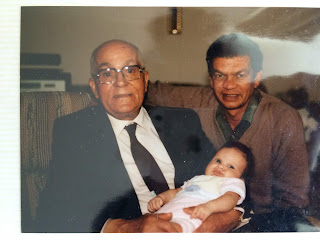Amateur surgeon saves virtual patient
The vital signs are good so, sweating and nauseated, I clench surgical tongs and start operating.
It's all fake for me but for trainee obstetricians and gynaecologists at Middlemore, this couldn't be more real.
The first of its kind in the country, LapSim laparoscopic simulators allow trainees to hone their skills without setting foot in a theatre. A study in Denmark, where the simulators are mandatory, found those who trained on them, performed surgery in half the time of other novices.
Middlemore's obstetric and gynaecology senior medical officer Douglas Barclay is confident with his new tools. He undertakes simulation after simulation when the Sunday Star-Times visits, ranging from removing gallstones to an ectopic pregnancy.
"I can teach you in a morning," he promises.
Virtual or not, my palms are sweating before I even grab hold of the free-moving scissors and tongs to perform the intricate task of clamping a blood vessel.
"Boys are better at it," fellow for women's health Anna Marie Van de Merwe says, wrinkling her nose.
It must be their affinity for computer games.
Trainees spend hours at the simulators, skipping coffee breaks in the name of competition, Barclay says.
I could have done with a coffee myself as I forced my mind to focus on the pulsating organs in front of me.
Maybe I'd have been better operating on male anatomy, but for whatever reason, I felt sick as I stared at the virtual replica of precious organs before me.
At Barclay's instructions, I gingerly took hold of the instruments and started to move them towards the rogue blood vessel. Aware of my hesitation and general "aloofness", Barclay was soon behind me offering advice.
"She's going to think I'm flirting now," he said as he grabbed hold of the instruments in my hands. To be honest, it was the furthest thing from my mind.
Keyhole surgery is like pick up sticks, it is hard to know the distance between objects and even harder to get the snips and clamps at the end of your tools to fix where you want them to.
A horrifying video Barclay shows of real surgery portrays a hesitant pair of hands trying delicately, again and again, to cut the right part of tissue without damaging other vital organs.
Miss and there's blood everywhere and major complications.
But it's already too late for me.
After successfully clamping one side of the vessel, which looks a lot like a worm, I inadvertently cut through the entire thing.
Result, a big, bloody mess.
Unlike with any competent surgeon, panic and hysteria set in.
Barclay guided my hands to no avail. Suction was needed to clean up the blood.
Eventually we clamped it off, cutting off the blood flow.
It's a fail.
But the beauty of simulation is, after injuring one patient, you get a second shot, so I set about the sterilisation process of clamping a set of fallopian tubes.
Practice makes perfect. Already I was used to staring at the insides of a woman, and by the end of the procedure I'm as proud as Punch as I expertly clamp each tube.
At 91 per cent success on time, accuracy and with no tissue damage, I'm a pass. Medical school, here I come.
But the intensity of the situation still threatened to overwhelm me as I tried to focus on my doctor expert, in what I hope was a candid, even lucid, conversation.
"Doctors that come to theatre now, their whole attitude has changed," Barclay says.
"They want to come into theatre and they know what they're doing, because they've done it before.
"Their speed has improved, they're confident. I'm delighted."
About eight hours on the new technology is believed to equate to 50 hours of watching and learning in theatre, he says.
It is thanks to the Lion Foundation that the simulators are here in the first place. A $900,000 grant to Middlemore's specialised Clinical Training and Education Centre made it possible.
All the Middlemore obstetric and gynaecologist registrars will complete three half-day sessions with the technology, before the rest of New Zealand's trainees take part.
It's a far cry from operating on sponges and perfecting surgeon's dexterity by tying knots in rubber bands.
Who said computer games were a waste of time? These ones will save lives.
- Sunday Star Times








Comments
Post a Comment